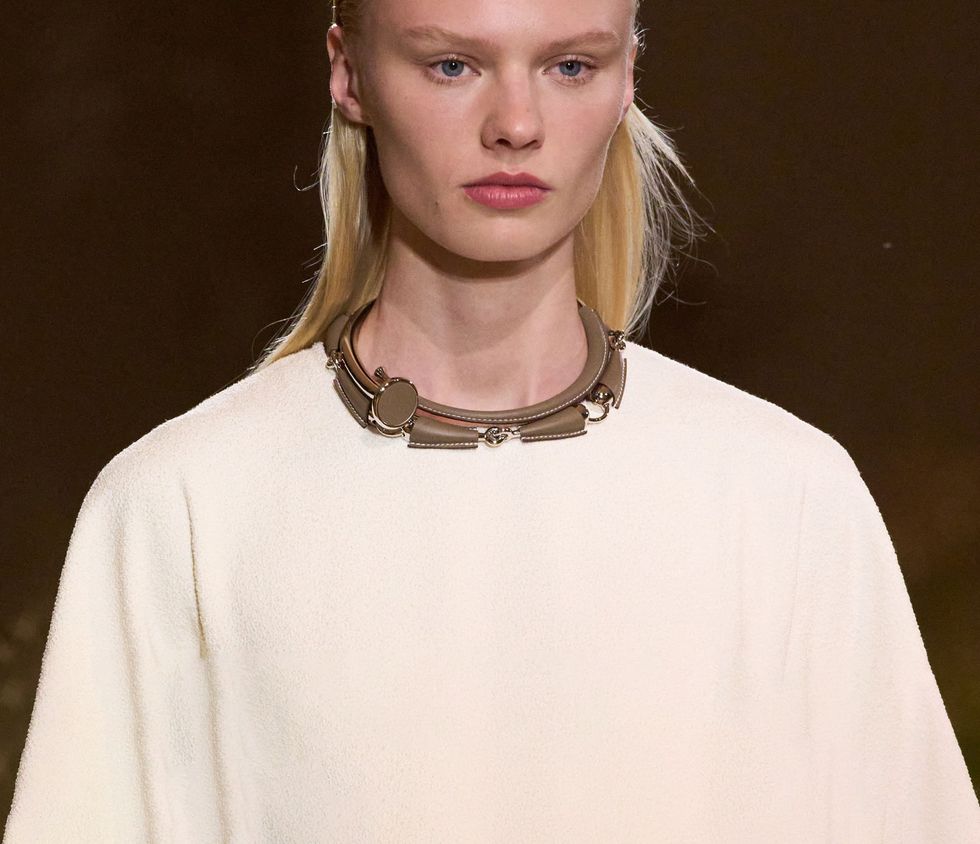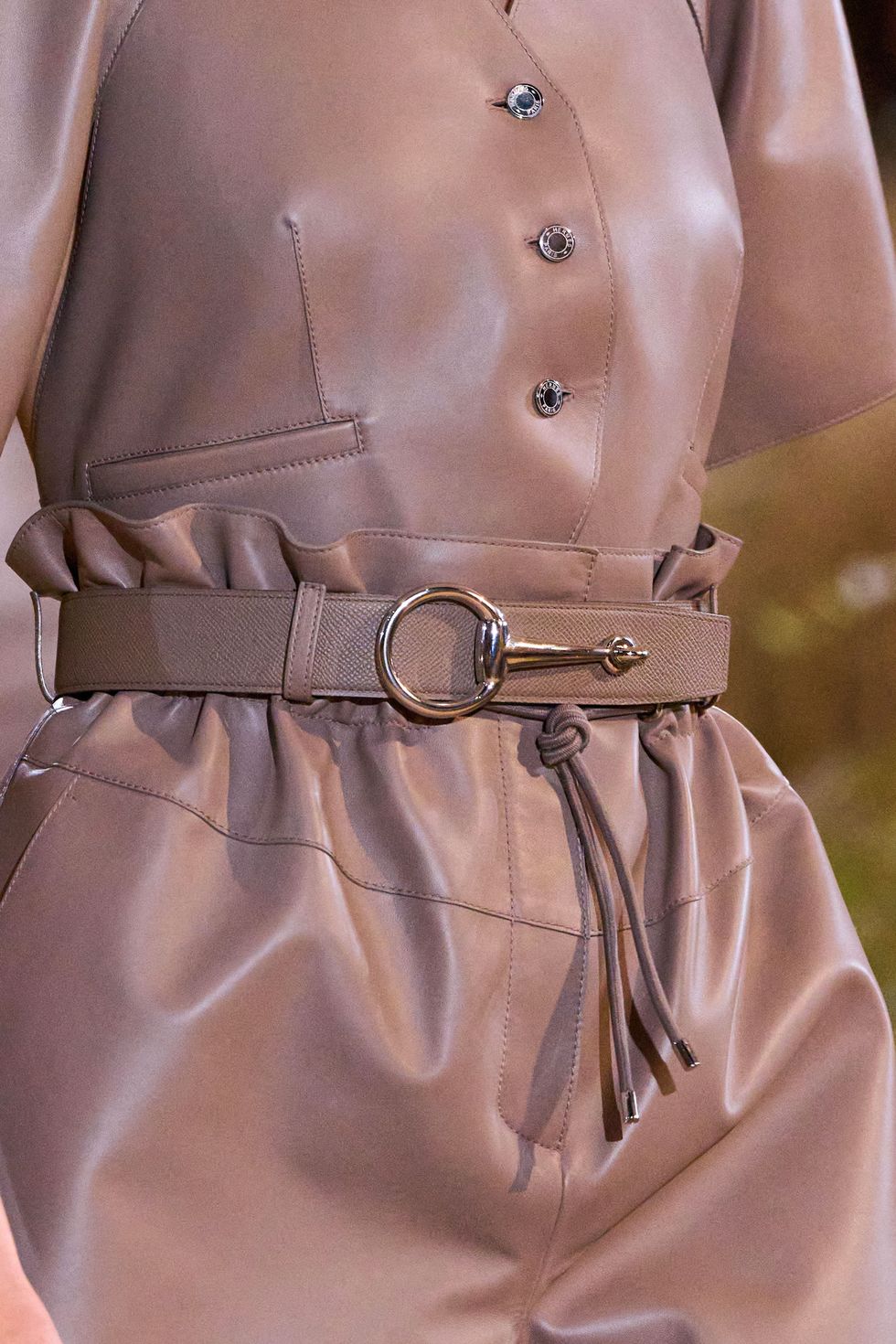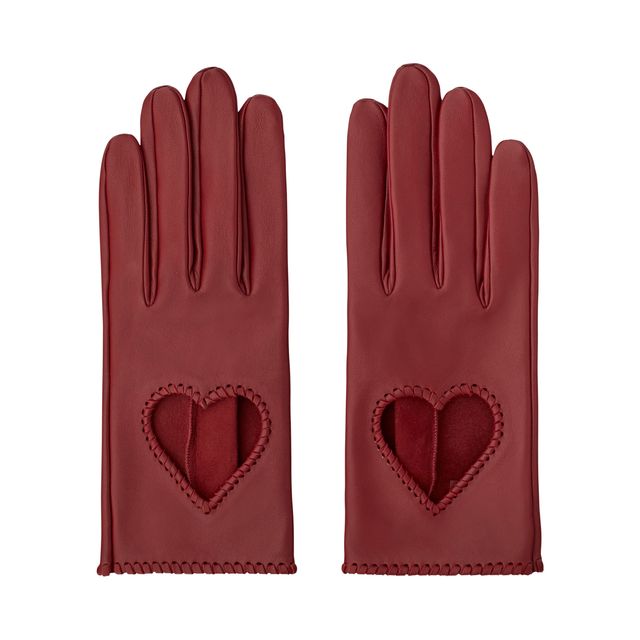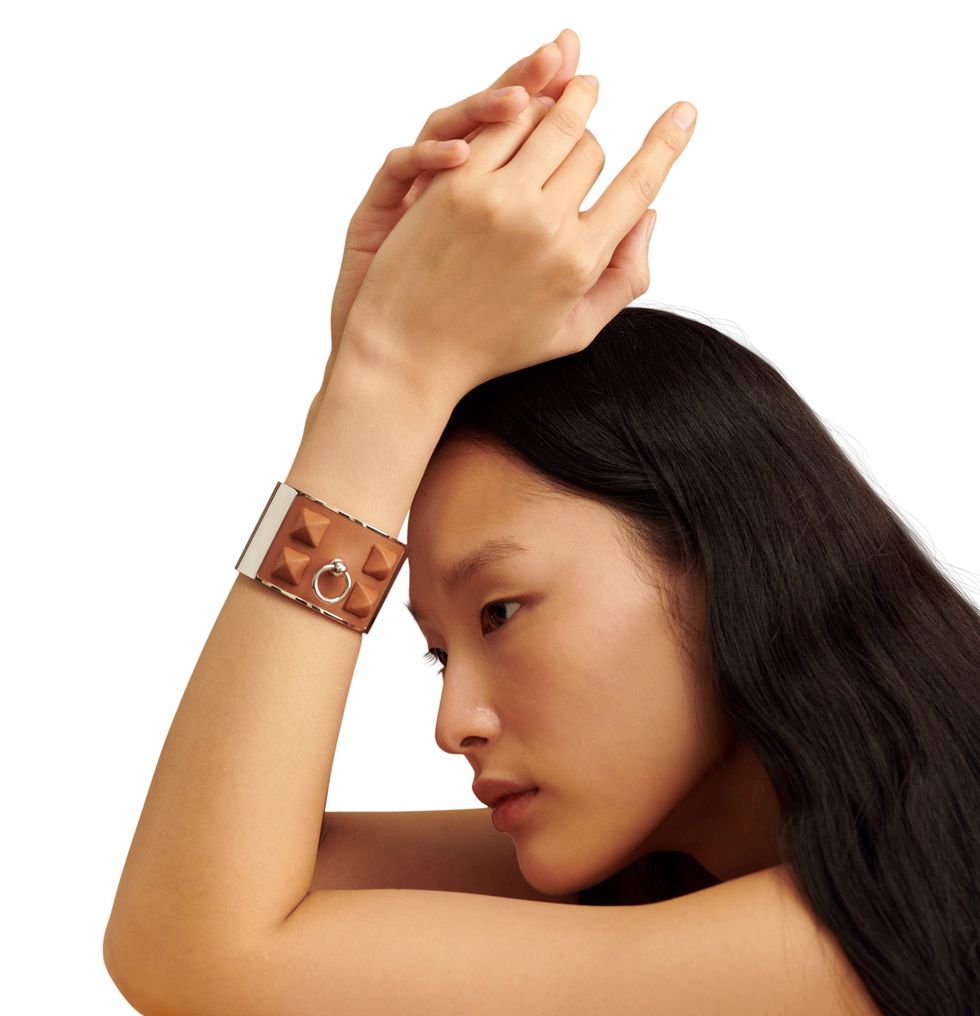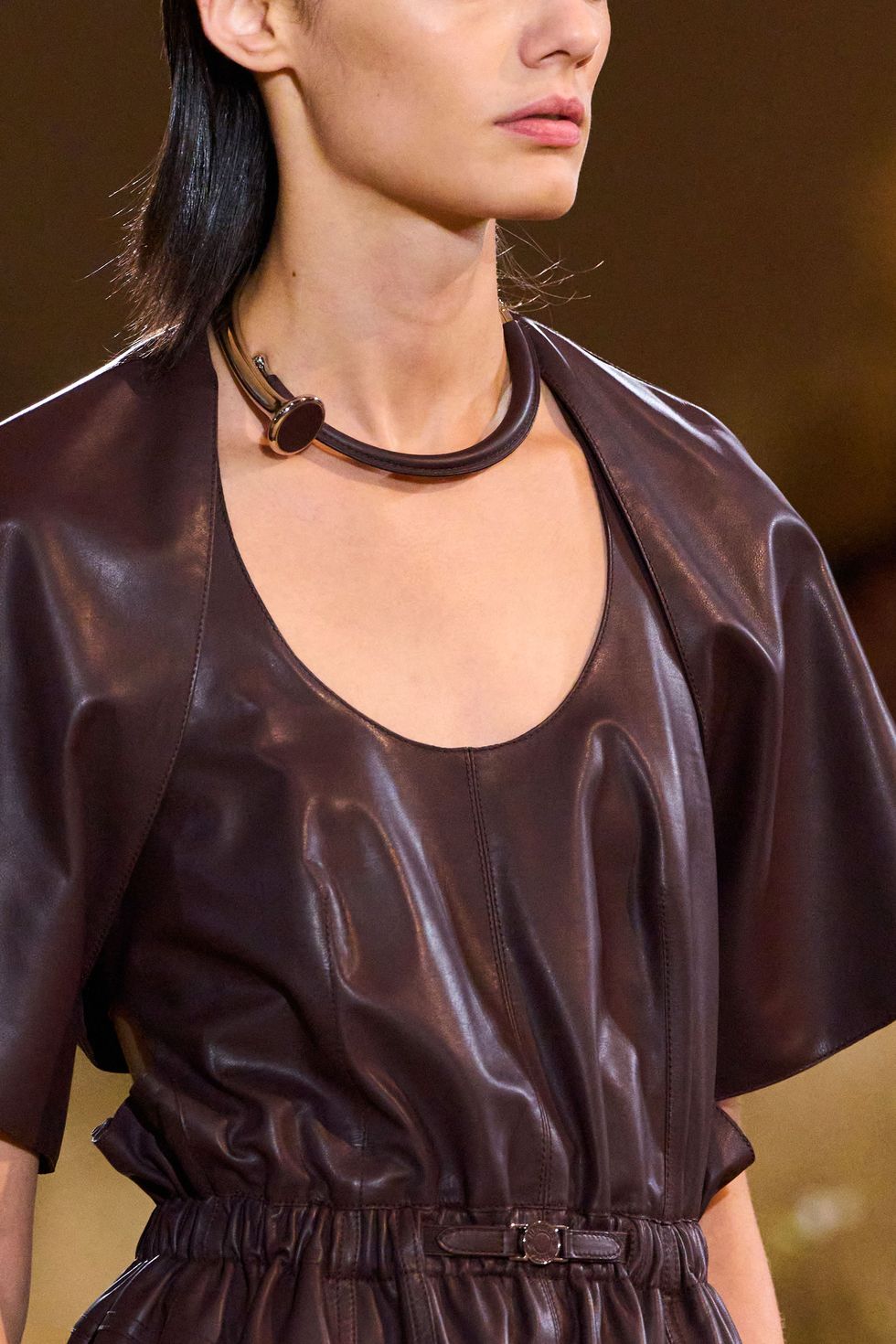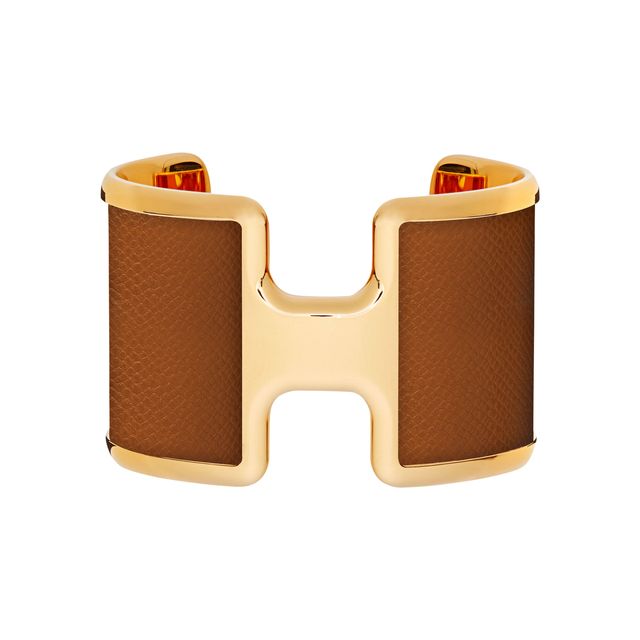Many years ago, Clémande Burgevin Blachman received a memorable gift: the perfect vintage belt. She’s always loved design objects, and to her, accessories represent an ideal—an aesthetic statement that serves a purpose. The belt was the Hermès Etriviere style and once belonged to her father. Now, as the creative director of fashion accessories at the house, Burgevin Blachman has better context for why it appealed to her so much. She values items with purpose and history. At Hermès, that’s the ethos.
“I need things to be wearable and have a function, which is also the beauty of the philosophy at Hermès,” she says. “The idea of transmission is very important to me. I’m a big believer that even in a piece of fashion or in accessories, there is some kind of imprint. The object you’re wearing is carrying some kind of memory that is actually the beauty of the people who made it, the story behind the idea.”
Burgevin Blachman grew up with parents immersed in design. “They were antique dealers at a flea market in Paris, so I often say that this very particular background shaped my eye,” she says. Her mother ran an advertising firm working with luxury clients and was a fit model for Azzedine Alaïa in the late ’70s, but Burgevin Blachman didn’t take the typical designer’s path. She studied literature at the Sorbonne and then worked in creative direction, hoping it would lead her to fashion. She has, at times, felt a bit insecure about her qualifications for working as a designer. “I didn’t study fashion. I think all of this was, at least in my thirties, a bit of a conflict for me,” she says.
Her career changed course when she met Raf Simons. “He did not come from a regular fashion background, as an industrial designer, and I think that maybe he saw something in me,” she says. She met Simons while he was at Dior, and when he became the chief creative officer of Calvin Klein in New York, Burgevin Blachman followed him there.
It was a creative time, spent working on the brand’s home line and collaborating with Simons, as well as fellow Calvin Klein designers Pieter Mulier and Matthieu Blazy (now at the helms of Alaïa and Bottega Veneta, respectively). They were a tight-knit group. “We knew, in a way, when we all left New York, that maybe it was time for all of us to go our own way,” Burgevin Blachman says. She moved to Antwerp and worked on Simons’s namesake line, later joining Mulier at Alaïa. But she saw Hermès in her future. Returning to Paris has given her a new perspective on her hometown. She sees it like a starry-eyed visitor might, she says. “I’m totally Emily from Emily in Paris right now with my own city. After living in Antwerp and New York, I’m like, ‘Oh, I love you, Paris.’”
Burgevin Blachman is fascinated by the Hermès archive and traditions and the brand’s equestrian roots. “I would never imagine that a horse could carry so much inspiration. It seems endless in a way, which always amazes me,” she says. “When we’re at the beginning of every collection and we know we are going to dig into the archive, I will smile. It’s like, ‘Yay!’” She’s explored the house’s history with leather sheathing, looking to the work of talents like architect Jacques Adnet, who designed Hermès furniture in the 1950s. A metal and leather-wrapped necklace uses the stitchwork techniques she’s studied, while a gold choker takes the shape of a hunting horn, the cor de chasse. The palette for the spring 2024 collection included golds and bright reds that were inspired by a 16th-century Italian painting that Burgevin Blachman loves. “The starting point is always an element of the Hermès history, and then, of course, the inspiration goes through my own universe.”
The Hermès standards and traditions can be limitations that, counterintuitively, result in greater creativity. “You cannot design everything you want. You need to be an innovator, and you need to have a lot of resilience,” she says. “It’s this balance between what you want to design, your freedom to design, but also the respect you need to have for the values of Hermès.”
This article appears in the February 2024 issue of ELLE.

Adrienne Gaffney is a features editor at ELLE and previously worked at WSJ Magazine and Vanity Fair.

